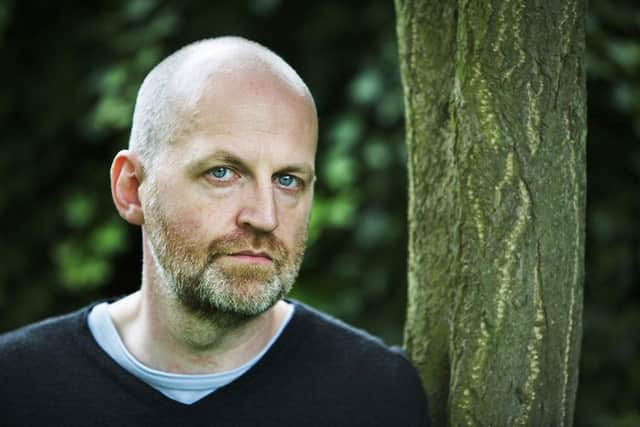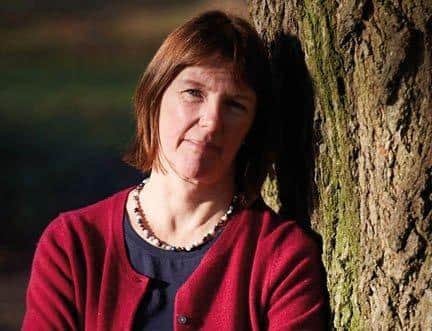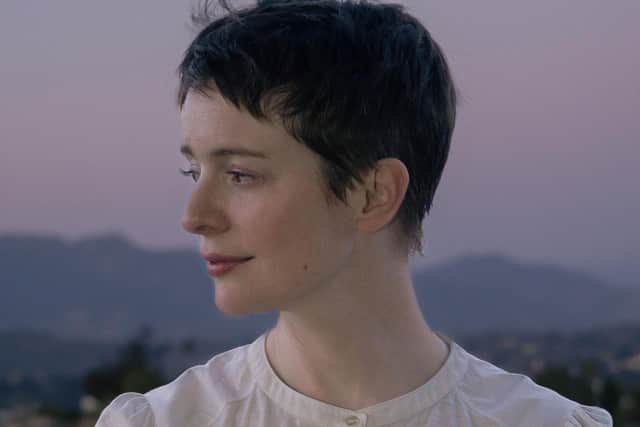Edinburgh International Book Festival reviews: Alison Watt and Richard Holloway | Don Paterson and Kathleen Jamie | Michael Ignatieff | Emily St John Mandel | Karl Ove Knausgaard | Geoff Dyer


Book festivals which managed to pivot online during the pandemic now face the challenge of luring audiences back to the live experience. And never is the value of live events more apparent than when one feels one is eavesdropping on a special encounter, as we were on Saturday at the conversation between former bishop Richard Holloway andartist Alison Watt.
The two became friends when Watt was looking to make a painting for a non-secular space, and Holloway introduced her to Old Saint Paul’s church in Edinburgh, where he had previously been rector. Watt’s painting, Still – a 12ft x 12ft image of white draped fabric – now hangs in the Memorial Chapel.
Holloway’s voice audibly shook as he told the story of Albert Ernest Laurie, rector of Old Saint Paul’s at the turn of the 20th century, who became an army chaplain during the First World War. When Laurie returned from the trenches, he created the Memorial Chapel, and was sometimes to be found there at midnight with a thurible, saying the names of the men over whose dead or dying bodies he had ministered. The space, Holloway says, contains “the complexity of the human condition”.


Conversation flowed from there as Watt interviewed Holloway about his long life and shifting contours of faith and belief. Over some 20 years of Edinburgh International Book Festivals, audiences have shared in parts of his story, so Saturday’s event felt both new and familiar, a journey from answers to questions, from certainty to doubt and tentativeness.
“The only Christian doctrine I hold with complete approval,” he said, “is original sin – we are f***ed-up creatures.” But he said that the Christian faith still held out a way of moving forward from difficult experiences, whether personally or societally, as Truth and Reconciliation Commissions have managed to do in countries like Northern Ireland and South Africa: a way to “own what made you, but be able to park it and move on”.
At the end of the event, he read a poem he had written which is in his latest book The Heart Of Things, and spoke about how poetry “has become a kind of Scripture” for him.
Poets themselves might be reluctant to embrace this idea but, on the same stage a few hours later, two of Scotland’s leading practitioners, Don Paterson and Scots makar Kathleen Jamie, agreed that there is a public role for the art form, particularly in difficult times.


Paterson, reading from his new collection The Arctic, prefaced his reading with a kind of apology: “A lot of the stuff in this book is grim as hell, understandable given that we are suffering from convergent apocalypses, which is fine if you’re a poet but not much fun for everybody else.”
‘Easter 2020’, a raw, angry poem, written during and directly addressing the early days of the pandemic, left the audience audibly moved. He said: “I never thought I’d say this but I really do think poets have an obligation to step up at the moment, just to bear witness.”
It was a sentiment Jamie echoed, if equally reluctantly, speaking of poetry as “self rescue – and if I take other people with me, that’s absolutely fine”.
There was more explicit talk of emotional rescue from Canadian writer, historian and one-time politician Michael Ignatieff when he discussed his new book, On Consolation: Finding Solace In Dark Times, with Allan Little. In it, he delves into the thinkers of the past, from the biblical character of Job, to Cicero and Abraham Lincoln, looking at the ways in which they needed solace, and how they found it.
There is some comfort, he says, in the simple fact that there have always been dark times: think of Montaigne, writing amid civil war and plague in 1586, or Condorcet, writing his treatise on progress as he hid from the Jacobins who would eventually claim his life.
Personally, he says, he can’t take consolation from religious belief, or from the idea that history is a continual progression towards better times. What he comes back to is love, company, friendship, “being loved by someone else and knowing a bit about loving them back”.
Fellow Canadian, novelist Emily St John Mandel found consolation in starting a new novel in the dark early days of the pandemic in New York City.
“I thought the grand project of a novel might be a refuge, good for my mental health. I wanted maximum escapism. Anywhere on planet Earth was too close to my apartment, so I ended up with Moon colonies and time travel!”
That book, Sea Of Tranquility, is out now, beginning with a remittance man in Vancouver Island in 1912, loosely based on one of her forebears, and ending with a futuristic book tour in 2203.
But there is a pandemic in it too, just as there is in her best-selling previous novel, Station Eleven. “You can start as an escape and then realise that you’ve just written about your own circumstances,” she said. “The dark horrible historical moment seeped in.”
Many of the books currently being published have a little of that seepage. Speaking about his new book, The Last Days Of Roger Federer, Geoff Dyer spoke about the way in which the pandemic had coloured the “atmosphere” in which the book was written, even if it did not shape the material.
The book explores the late and last works of writers, artists, musicians and, of course, tennis players. But there are many ways to make an exit from the court: like Federer, like Serena Williams, playing a “ceremonial” last US Open, or like Boris Becker, ignominiously in jail.
Visual artists tend to fare better that writers when it comes to late flowering – think of Turner’s transcendent near-abstracts, though Dyer said that John Berger’s late work, written long after his Booker Prize-winning novel G, and informed by decades spent living in a peasant commune in the French Alps, had a pure seam of wisdom about them.
It was a member of the audience who mentioned David Bowie, whose beguiling last album Blackstar was released days before his death in 2016, and it was called to mind again by Norwegian writer Karl Ove Knausgaard as part of a discussion about his new novel, The Morning Star, which circles around the subject of death.
A lover of music, Knausgaard has compiled Spotify playlists (tracks ranging from Albinoni to Billy Eilish) for each of the nine characters whose voices we hear in the book, which centres on the appearance of a menacing star which causes uncanny events. Here, too, he says, the events of 2020 “seeped in” to the portentous atmosphere.
Knausgaard said that, after completing his six-volume cult series of autobiographical novels, My Struggle, he thought he might not write again. The urge to write a novel came along “all of a sudden” and with it, a new series: he has now written two further books (which have yet to be translated) and is beginning a fourth.